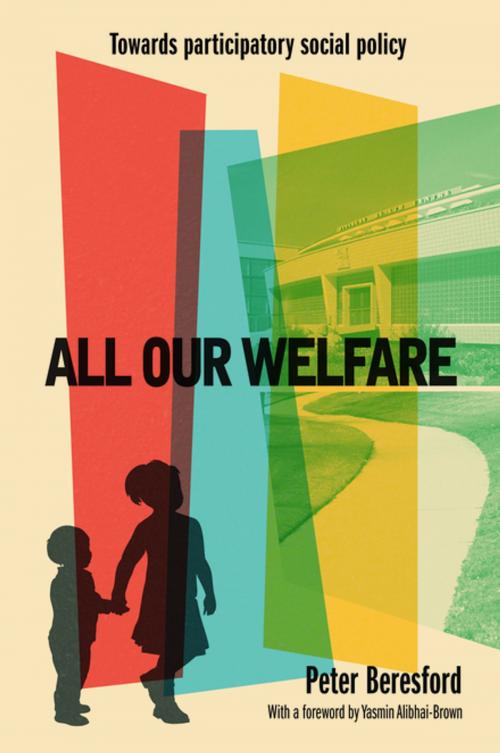All our welfare
Towards participatory social policy
Nonfiction, Social & Cultural Studies, Political Science, Politics, Social Services & Welfare, Government, Social Policy, Social Science| Author: | Beresford, Peter | ISBN: | 9781447328971 |
| Publisher: | Policy Press | Publication: | January 29, 2016 |
| Imprint: | Policy Press | Language: | English |
| Author: | Beresford, Peter |
| ISBN: | 9781447328971 |
| Publisher: | Policy Press |
| Publication: | January 29, 2016 |
| Imprint: | Policy Press |
| Language: | English |
The UK welfare state is under sustained ideological and political attack. It has also been undermined by accusations of paternalism and past failures to engage with the very people it is intended to help. This unique book is the first to critique the past, present and future welfare state from a participatory perspective. Peter Beresford, champion of user involvement, draws on pioneering theories and practice of welfare service user movements to offer a blueprint for a new participatory social policy. He controversially challenges orthodox social policy and the limitations of both Fabian and Neo-liberal perspectives in engaging people to improve their own welfare, drawing on service users ‘ own ideas and experience, including fascinating vignettes from his own family’s experience, to demonstrate the value of ‘user knowledge’. Filling a much-needed gap in the literature, this accessible text will provide a great introduction for students and a road-map for practitioners of an alternative vision for a future participatory and sustainable social policy. It will also command much wider interest from everyone concerned with how we look after each other in future in society.
The UK welfare state is under sustained ideological and political attack. It has also been undermined by accusations of paternalism and past failures to engage with the very people it is intended to help. This unique book is the first to critique the past, present and future welfare state from a participatory perspective. Peter Beresford, champion of user involvement, draws on pioneering theories and practice of welfare service user movements to offer a blueprint for a new participatory social policy. He controversially challenges orthodox social policy and the limitations of both Fabian and Neo-liberal perspectives in engaging people to improve their own welfare, drawing on service users ‘ own ideas and experience, including fascinating vignettes from his own family’s experience, to demonstrate the value of ‘user knowledge’. Filling a much-needed gap in the literature, this accessible text will provide a great introduction for students and a road-map for practitioners of an alternative vision for a future participatory and sustainable social policy. It will also command much wider interest from everyone concerned with how we look after each other in future in society.















